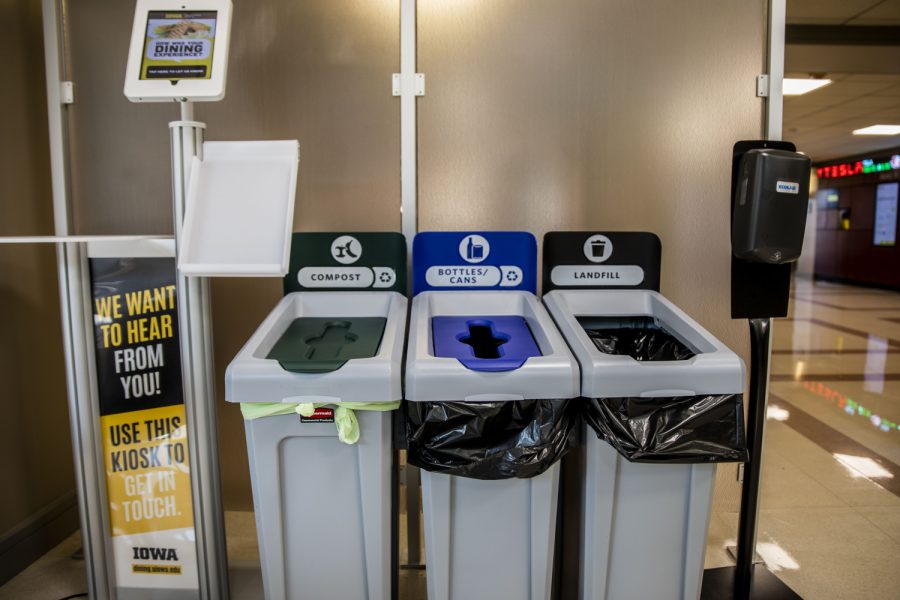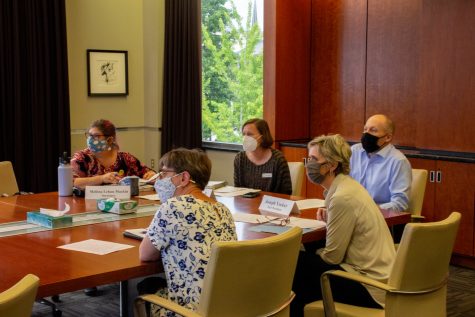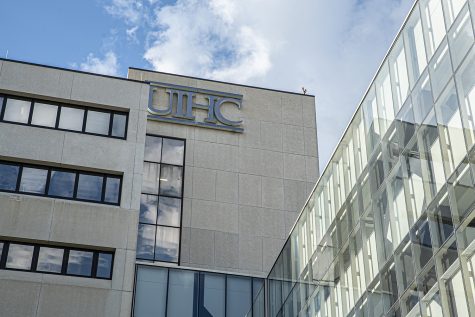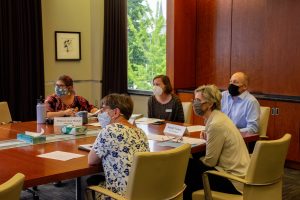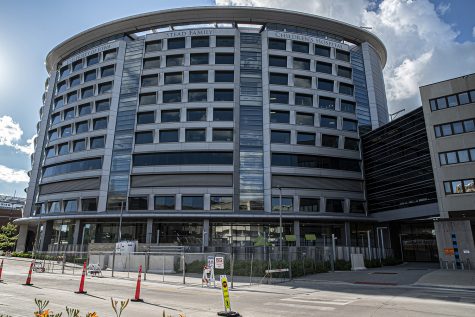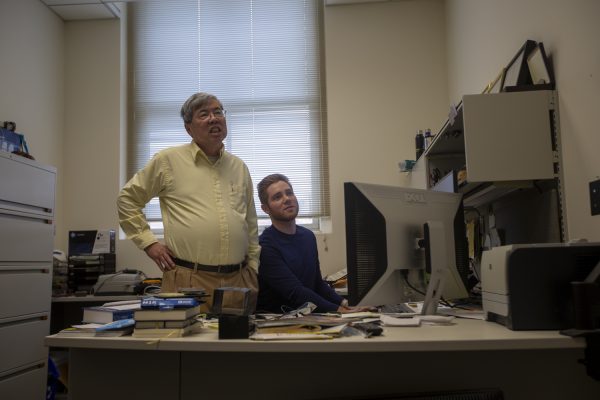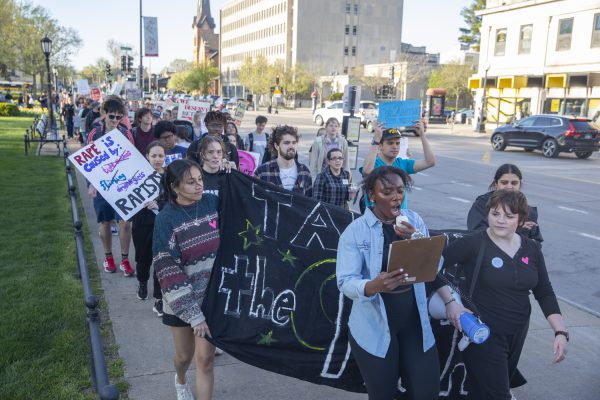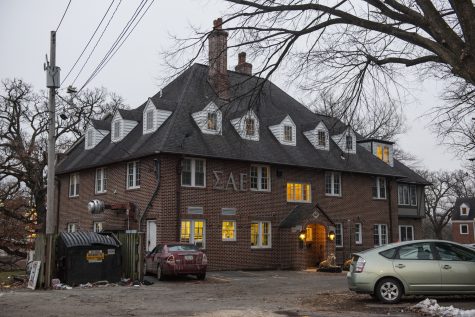Tippie College of Business expands composting project
The University of Iowa Tippie College of Business has a new composting bin located in Pat’s Diner to reduce waste on campus.
A new green compost bin is seen on Monday, Aug. 30, 2021. The new bin can be found in Pat’s Diner which is located in the Tippie College of Business building.
August 31, 2021
Pat’s Diner in the University of Iowa Pappajohn Business Building added a composting program to the cafe this year, as the Tippie College of Business continues to push for more sustainability efforts on campus.
The composting station in the diner includes bins that collect food waste like coffee grounds and unfinished sandwiches.
“Composting is actually a process of turning organic materials — basically breaking them back down into compostable materials that can be added back to the soil,” said Beth MacKenzie, sustainability program manager from the UI Office of Sustainability. “It’s breaking down, you know, food waste, or plant waste into materials that resemble dirt, but it’s not actually dirt.”
The composting project at Tippie started with a pilot program that ran during 2020, before the college started to expand the composting stations.
“We had a pilot program and that went super well,” said Sarah Maples, research support and sustainability manager at Tippie College of Business.
When Maples talked about the expansion of the project with the elected Tippie staff council, she said they showed a lot of interest.
“Our elected staff council got really excited about it and was pushing for it,” Maples said.
Maples said composting is not as easy as it may sound, however, as many factors could easily contaminate the product. The contamination of the compost must be under 1 percent in order to be used, she said.
Devin Kurbyun, the college’s social responsibility project coordinator, said composting can be difficult to coordinate, even though it is very hands-off, because it can be contaminated so easily.
With the business college having its own composting stations, the UI Office of Sustainability will reap some of the benefits, Maples said.
“They’re able to capture materials that we aren’t able to capture currently on campus,” MacKenzie said. “When a college like Tippie commits to collecting compost, or organic materials for composting, that’s a material that would otherwise be going in the landfill. Whereas, in our dining halls, we already capture all of that. It’s part of the process there.”
The new expanded composting locations are more accessible to students than the pilot version, Maples said.
“There were still three locations, but they were not as accessible to students — undergraduate students — and that’s really what makes this different,” Maples said.
Maples said Pat’s Diner also generates the most food waste on campus, compared to other sites that stations have been placed in before, like the Pomerantz Career Center.
A third-party business, Compost Ninja of Iowa City, picks up the composting material from the university.
Kurbyun said the company will come to pick up the compost every Tuesday and Thursday. Once the compost is taken, other than making sure it is not contaminated, the process is very hands-off for those involved.
“Once they pick it up, they put it in their pile like a landfill and they don’t touch it,” Kurbyun said. “All they have to do is kind of stir it around — make sure there are not any contaminated materials in there.”
Another factor that complicates composting is a lack of knowledge about what kinds of waste can be composted, Kurbyun said.
“What we’re trying to identify now, and what I’m trying to figure out as an intern, is — how do we educate more people on composting so we can expand it even further?” Kurbyun said.
As the project continues, Kurbyun and Maples both hope to expand the project and inspire students to care about composting.
“The main goal is to actually expand the composting, and to get it as efficient and clean, non-contaminated as possible,” Kurbyun said. “I think one of the goals is to make people personally believe that they can make a change.”



